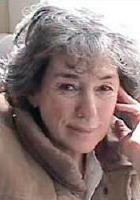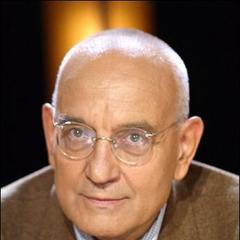Virginia Woolf Quotes - Page 6

Never let anybody guess that you have a mind of your own. Above all be pure
Virginia Woolf (2013). “Delphi Complete Works of Virginia Woolf (Illustrated)”, p.3993, Delphi Classics
Virginia Woolf (2007). “Selected Works of Virginia Woolf”, p.201, Wordsworth Editions
Virginia Woolf (2003). “A Writer's Diary”, p.78, Houghton Mifflin Harcourt
Virginia Woolf (2015). “Orlando”, p.149, Booklassic
Virginia Woolf (2007). “Selected Works of Virginia Woolf”, p.296, Wordsworth Editions
These moments of escape are not to be despised. They come too seldom.
Virginia Woolf (2013). “Delphi Complete Works of Virginia Woolf (Illustrated)”, p.1395, Delphi Classics
Virginia Woolf (2003). “A Writer's Diary”, p.39, Houghton Mifflin Harcourt
Virginia Woolf, Nigel Nicolson, Joanne Trautmann Banks (1979). “The Letters of Virginia Woolf: 1932-1935”, Harvest Books
Virginia Woolf (2009). “The Essays of Virginia Woolf: 1929-1932”, Chatto & Windus
Virginia Woolf (2012). “Mrs. Dalloway - Broadview Edition”, p.49, Broadview Press
Virginia Woolf (2013). “Delphi Complete Works of Virginia Woolf (Illustrated)”, p.2593, Delphi Classics
Virginia Woolf (2016). “The Waves”, p.111, Virginia Woolf
Virginia Woolf (2015). “Jacob's Room”, p.46, Booklassic
Virginia Woolf (2007). “Selected Works of Virginia Woolf”, p.558, Wordsworth Editions
Three Guineas pt. 3 (1938)
Virginia Woolf (1983). “To the lighthouse: the original holograph draft”, Chatto & Windus
I ransack public libraries & find them full of sunk treasure.
"The Diary of Virginia Woolf: 1920-1924".
Virginia Woolf, David Bradshaw (2009). “Selected Essays”, p.133, Oxford University Press
The mind must be allowed to settle undisturbed over the object in order to secrete the pearl.
Virginia Woolf (2013). “Delphi Complete Works of Virginia Woolf (Illustrated)”, p.4523, Delphi Classics
Virginia Woolf (2012). “Monday or Tuesday: Eight Stories”, p.33, Courier Corporation
Virginia Woolf (2016). “The Waves”, p.204, Virginia Woolf
One can only believe entirely, perhaps, in what one cannot see.
Virginia Woolf, Michael H. Whitworth (2014). “Orlando: A Biography”, p.116, Oxford University Press, USA






